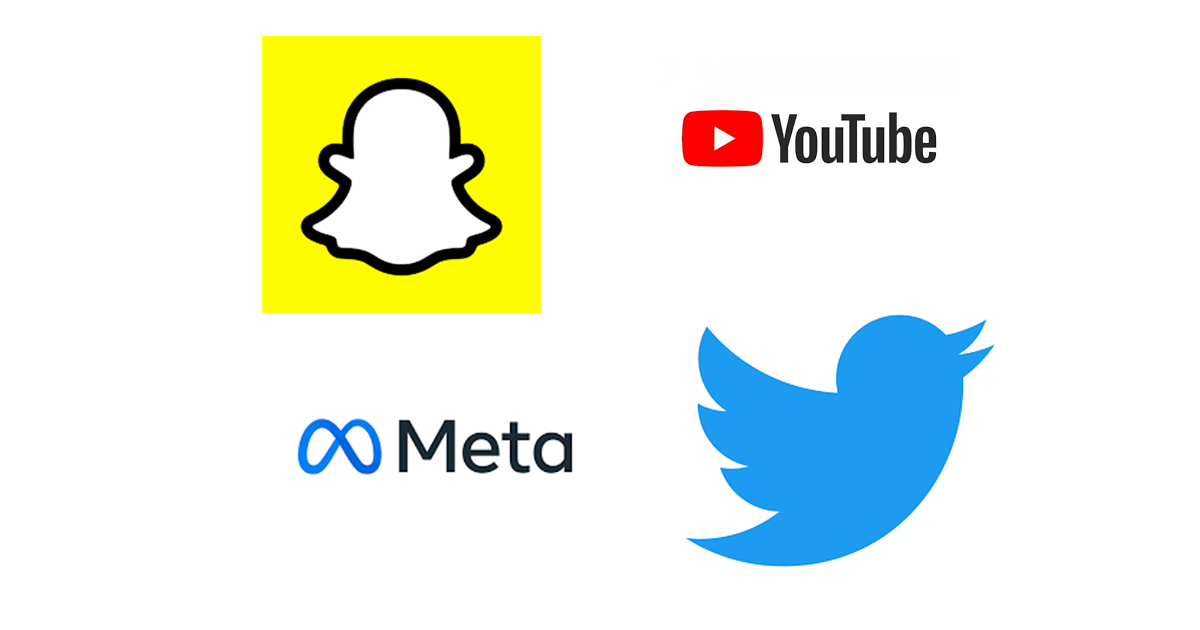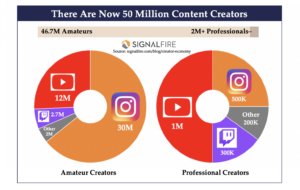The Future of Jobs: A Glance Through The African Creator Economy

The global creator economy is estimated to be worth over $100 billion. The world population which now pegs at 8 billion has an average of 1.4 trillion or 16.72% from Africa. With these statistics, the African continent is renowned for its active youth population as well as the untapped potential which would usually be the pull factor for foreign investments in virtually all sectors. For example, in the financial (inclusion) space, there is a far greater margin in the number of people who don’t have access to the simpler financial services offered by tech compared to the ones who do.
A McKinsey analysis states that fintech in Africa is at the end of the beginning, an eruption phase – having witnessed the disruption of how financial services are undertaken. “African fintech is emerging as a hotbed for investment, with average deal sizes growing and the proportion of fintech funding in Africa increasing over the past year, bringing jobs and growth to African economies. And the story is only just beginning.” But this is not about fintech, even though we’ll likely talk about how the creator economy can thrive with the other sectors.
If there is limited access to educational materials or payment platforms, the creator economy would become traditional and even ordinary. The history of the different types of economy came a long way – thanks to the innovation of smartphones!
What is meant by the African Creator economy?
In an interview with the founder of Selar, an e-commerce platform for African Creators, CEO Douglas Kendyson noted that “The creator economy comprises people that are monetizing their knowledge and audience and (sort of) creating value and getting paid for that”. Now, you see it’s not off-point to have mentioned the role of fintech and edtech for a successful creator economy.
Backend Stories: Meet the founder who paid over $6 million to users without any fundraising
Who are Creators?
Mr X logs in to Coursera. He discovers a data analytics course and decides to have gotten a full grasp of it. He writes a book (or summary) about what he learnt and sells only 50 copies at a competitive price of $24.9.
XYZ uploads a YouTube content inspired by ABC titled: ”A day in my life”. Should XYZ not pay ABC for the inspiration? What makes this industry fascinating is that although ideas float, Creators ‘create’ unique pieces (as in works of art) from pieces (something disassembled).
The controversy around who creators are stems from what idea is original. Artists are also creators but how about creators of remixed songs? According to Wikipedia, remixing is ‘when an artist takes an original work of art and adds their take on the piece creating something completely different while still leaving traces of the original work.’
The Ouut speaks with Favour, a Sales strategist-cum-Writer who has sold a product, specifically a course for business owners on Selar. He admitted to having spent less to acquire his skill set while the revenue gotten from his sales has paid him his capital.
“In 2020, I got into copywriting. In 2021, I’ve spent around 60k to learn more and it is asides from data subscription. The more I learn, the more I update the course to give tangible information and more value to my customers.” To make definite sense, Favour ‘acquires’ a skill set and remodels it to create something new. He is among the skilled creators who identify the need to broaden intellectual capacity.
The African creator economy is a major resource for regional countries in the continent if explored judiciously. The continent particularly has leverage in the youth population who have been identified with a lack of opportunities to gainful employment. The average youth with exposure to digital assets.
COVID-19 and the African creator economy
“More than 50 million people around the world consider themselves creators, despite the creator economy only being born a decade ago. It’s become the fastest-growing type of small business…” SignalFire states.
The COVID-19 pandemic in 2020 was a global event that welcomed unprecedented attention towards the tech industry at large. There was a fundamental shift in the way things were done. The period drastically saw the rise of the work-of-home culture, online purchases as well as events hosted online limiting the need for physical connection.
As of June 2022, 33% of adults in Sub-Saharan Africa (SSA) now have access to mobile money payments due to the rapid increase in the usage of phones. A recent analysis by the World bank puts that the data represent “a share three times larger than the 10% global average.”
This increase in mobile devices marked the transition of the 50 million former and the new creators having to depend on the different platforms which include YouTube, Tiktok, Snapchat, Instagram etc for moderate pay and other streams of income.

However, platforms promoting the African creator economy are struggling to get funded. The ones who get funded have diverse product offers — pan-African payment platforms: Flutterwave and Paystack, as a case study enabling an e-commerce store for digital (and non-digital) products. Flutterwave also acquired Disha, a content creator platform in 2021 to save it from a revenue crash.
As disadvantaged as the African creator sector is, YouTube, in 2020 launched a programme called YouTubeBlack Voices targeted at creators in SSA. This gives them resources such as YouTube Partner Manager to harness creator opportunities, Training and networking, Development sessions and much-deserved seed funding.
Meta Inc. has also committed to the African creators’ economy by recently launching its “Creators of Tomorrow” programme to empower users to actively promote content on Facebook and Instagram.
Making revenues from advertising revenue shares, sponsored content, tipping, shout-outs, product placement, live and virtual events, paid subscriptions, digital content sales, VIP meetups, merchandise and fan clubs and many more, creators are fast-developing into brands to deserve external capital due to the booming state of the economy.
While there may be increased attention towards creators, African creator platforms need to engage in programs that attract them to venture capital funding together with serving products that gear them towards reaping the young African population.
#YouTubeBlack Voices Shortlist 46 African Creators for 2023 Cohorts
What You Should Know About Meta’s New Creators Monetization Tools
YouTube to give 45% of ad revenue to ‘Shorts’ creators
TikTok Partners Think WiFi to Launch free Wi-Fi hotspots in South Africa